.jpg)
.jpg)

.jpg)


.jpg)



.jpg)




How Asian Americans in One City Are Confronting a Wave of Burglaries
After a string of break-ins, the Asian American community in Eugene, Oregon is putting a spotlight on the issue of targeted robberies—and law enforcement’s response.
At a public forum in Eugene, Oregon, late last month, nearly 200 residents packed the pews and halls of a Korean American church. A panel of police chiefs, a bias crime prosecutor, and advocates faced an audience searching for answers around a wave of burglaries appearing to target Asian Americans.
Over the past three years, more than 20 homes belonging to Asian American business owners in the Eugene area have been broken into. Yet the race-based nature of the crimes, information that could have helped residents protect their homes and families, was not made public at first. Police initially described the incidents as targeting affluent households and neighborhoods. Only after a news report in late 2024 did members of the Asian American Council of Oregon (AACO) learn that Asian American households were being singled out.
Since then, the AACO has led efforts to draw attention to the robberies and press for transparency. The group organized its first public forum in January to open dialogue between Asian American residents, the Eugene and Springfield Police Departments, and the District Attorney’s Office. A second event, an “AAPI & Allies Public Safety Forum” held on October 23 with support from The Asian American Foundation (TAAF), drew an even larger crowd, which included the city’s mayor, state government officials, and journalists.
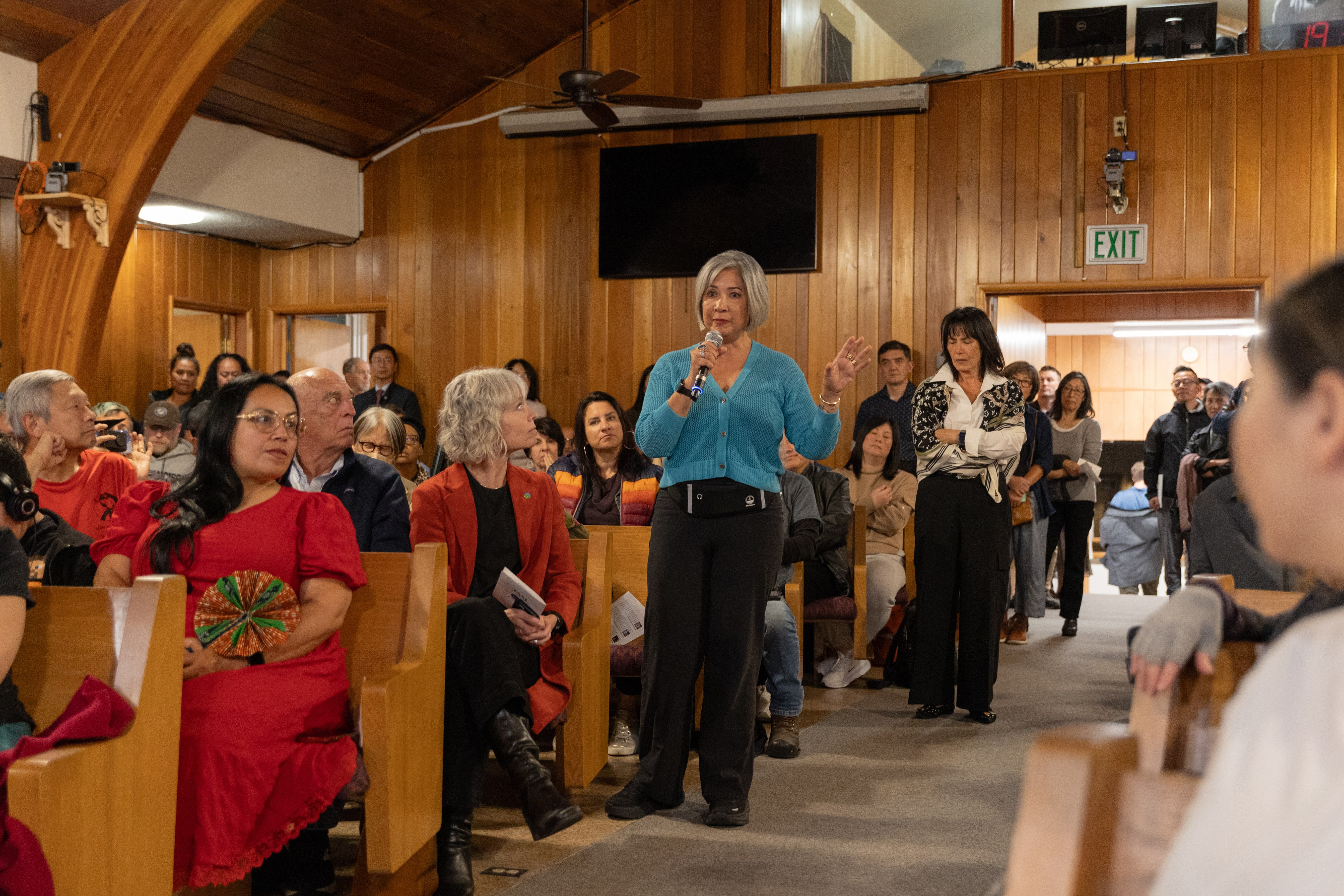
Residents asked how to prevent burglaries and what to do if one occurs. Panelists shared practical tips on installing automatic outdoor security lighting, hard-wiring cameras, and social media privacy. But for advocates that spoke with TAAF, the deeper concern was how to strengthen communication and trust between law enforcement and the Asian American community–including by tackling underreporting of incidents, reducing language barriers, and reaching Asian Americans where they are.
“I would be having regular outreach with the portions of our [Asian American and Pacific Islander] community that are trusted community centers. I would be reaching out to the pastors at some of the churches. I'd be reaching out regularly to some of the grocery stores,” said Jenny Jonak, an AACO board member who helped to moderate the forum. She noted that while there is a police department app for reporting crimes, it is geared towards those who are both tech savvy and English conversant.
“I'd probably be putting on some events once or twice a year where the AAPI community is invited to come and ask questions, learn about home hardening, things like that,” she continued.
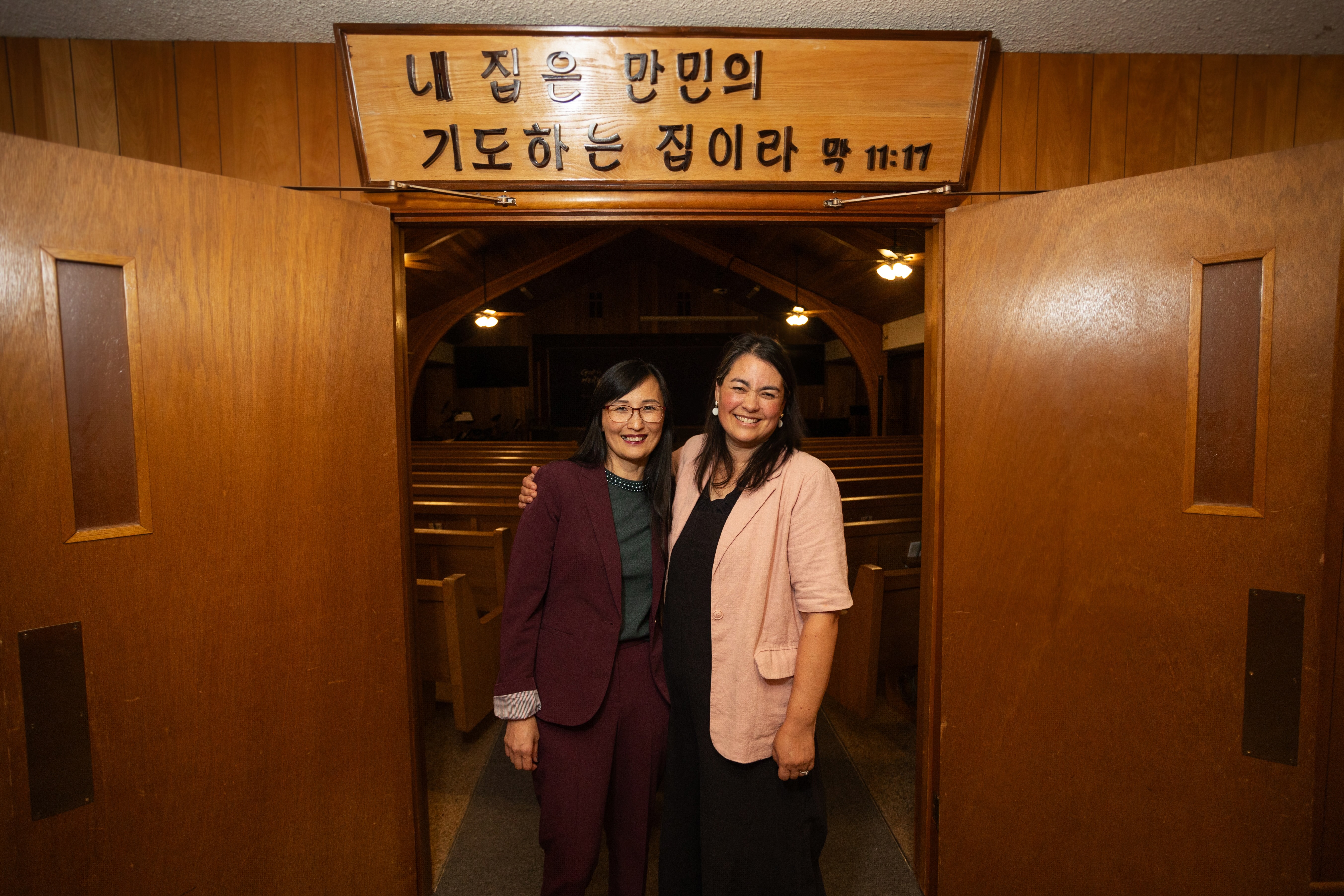
Another AACO board member and co-moderator, Jensina Hawkins, called for more robust officer training to support burglary victims and avoid long-standing stereotypes rooted in the “model minority myth,” which imply all Asian Americans are universally wealthy and successful, have valuables in their homes, and are thus inevitable targets. Advocates say these harmful assumptions can fuel victim blaming and discourage Asian Americans from coming forward.
“Put yourself in the shoes of somebody whose home has been absolutely violated, turned upside down, and you're trying to speak with a uniformed officer who's pointing a cell phone at you with an online translator,” Hawkins said. “None of this is going to make people feel safe [...] or keen to keep that interaction going.”
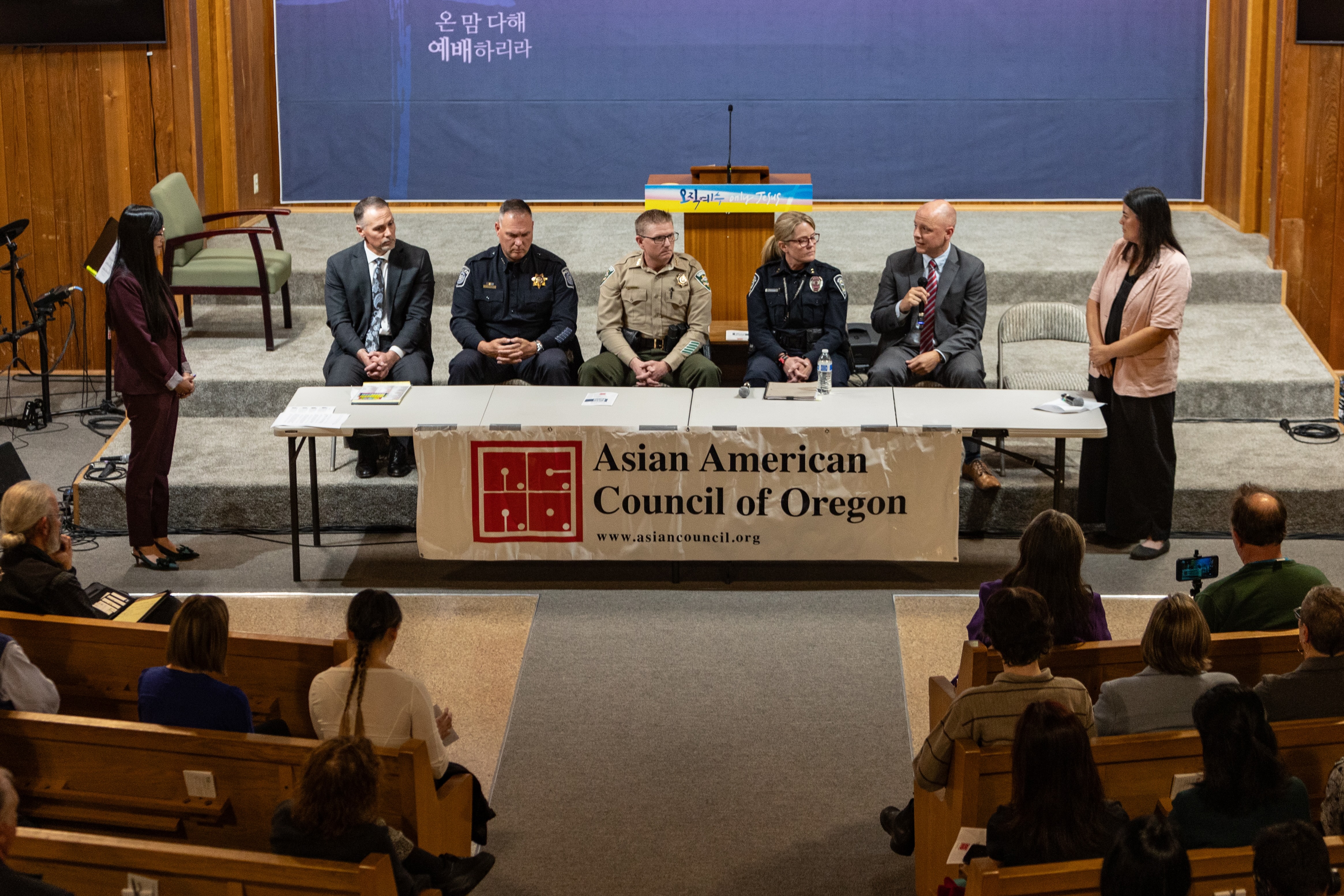
AACO’s media outreach efforts, with representatives blanketing local television and distributing materials in multiple languages over the past year, have also helped to shed light on the robberies as what they are: the actions of a highly organized crime ring. In Oregon, the Eugene break-ins have raised questions about how the justice system handles coordinated burglary groups operating across state lines. Even when perpetrators are caught, many are easily able to post bail and flee the state. Jonak believes this is one reason burglaries have continued despite more than a dozen arrests over the past two years.
“My hope,” she said, “is [that] we will have some criminal justice reform that will address some of those loopholes for organized crime.”
Since TAAF’s interviews with AACO, progress has been made in prosecuting the perpetrators of the most recent wave of robberies. On November 6, the U.S. Attorney’s Office in Oregon announced that federal charges have been brought against seven suspects in a multi-state burglary ring, who allegedly traveled from Washington to Oregon, surveilling and targeting Asian business owners. The case is now being investigated by the FBI and the Eugene Police Department.
“The thoughtful questions raised during the discussion made it clear how much work still needs to be done. It's not going to be easy, but this was such a meaningful start.” – An attendee at the forum
A NATIONWIDE PROBLEM
The incidents in Eugene have attracted national attention and renewed interest in the safety challenges facing local Asian American communities. A recent analysis by The Asian American Foundation found that of 485 known robberies targeting AAPI communities between 2018 and 2024, more than half took place in homes. Many burglaries appeared pre-planned, with some burglars surveilling and following business owners to their houses before striking.
TAAF also found states like Oregon which serve as major hubs for Asian-owned businesses experienced the highest concentrations of incidents in recent years. Thieves have been known to exploit language barriers and historic mistrust of police.
“Suspects believe Asian Americans are less likely to report crimes due to language difficulties or cultural mistrust,” according to the report. “This perception leads to repeated targeting and low fear of law enforcement accountability.”
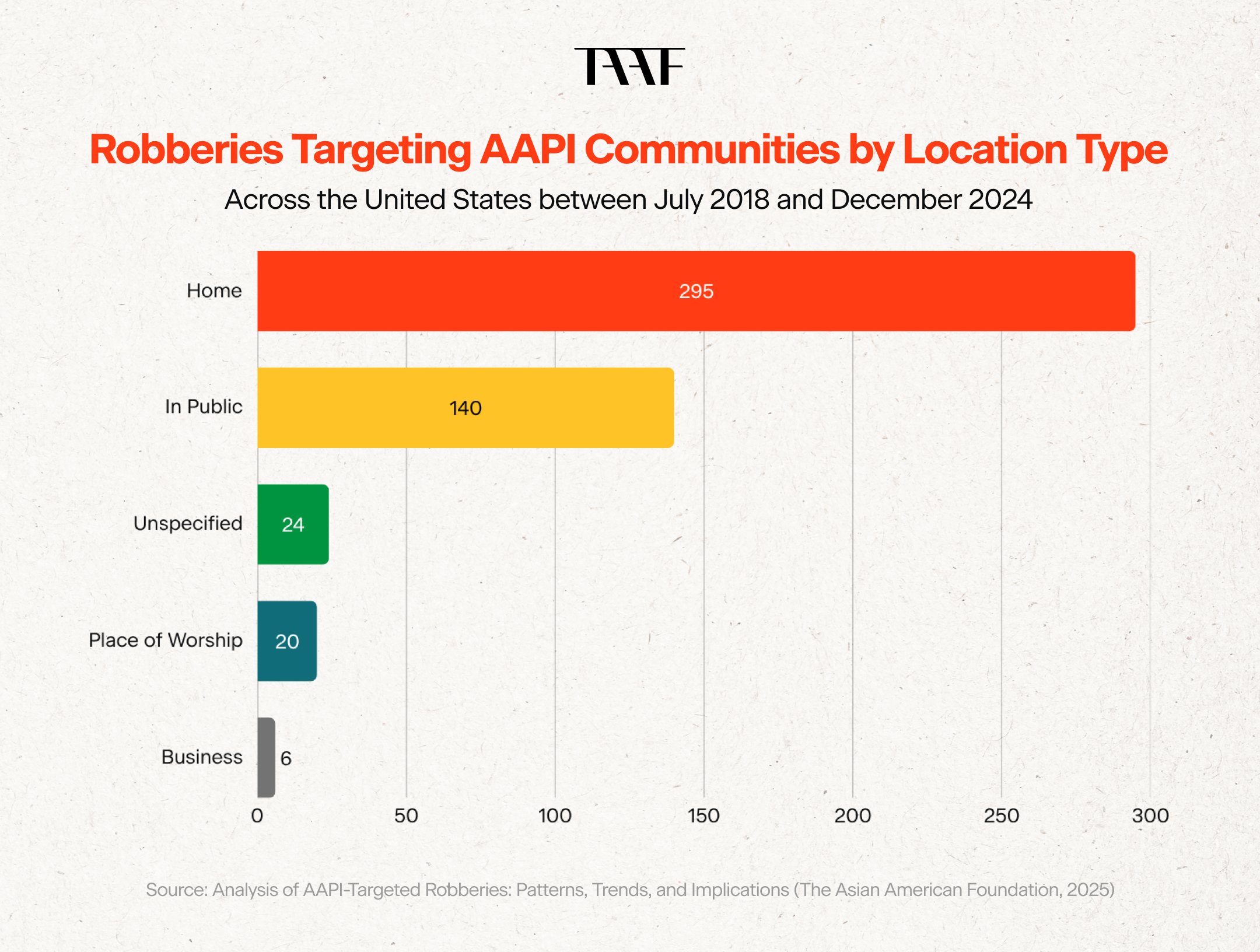
Guided by this data, TAAF has sought to engage with community members across America who are worried about targeted robberies, and connected with AACO based on the principle that those closest to a problem can make the greatest impact.
The organization’s sponsorship of the AACO forum in Eugene “is an example of where TAAF’s support can enhance what great leaders are already doing on the ground,” said Baonam Giang, TAAF’s Regional Anti-Hate Manager.
Jonak agreed that the support from TAAF was valuable not only in making AACO’s engagement with law enforcement and the public “so much more meaningful,” but because it allowed the group “to connect with people who've seen how things are being done in different parts of the country, and have a national presence.”

Apart from the immediate challenge of stemming the robberies, progress will ultimately depend on whether trust between Eugene’s Asian American residents and police improves in lasting ways. But the forum shows the power that a community can have when it comes together to confront an urgent problem.
“For a lot of these Asian families, it's their entire life savings, that they have scraped and scrimped and they have tried to do everything right,” Hawkins said.
“Eugene Police actually improved quite a lot with their communication,” Jonak added. “They actually work very closely with us now and make sure that they're proactive and make sure that we know the things that are going on.”
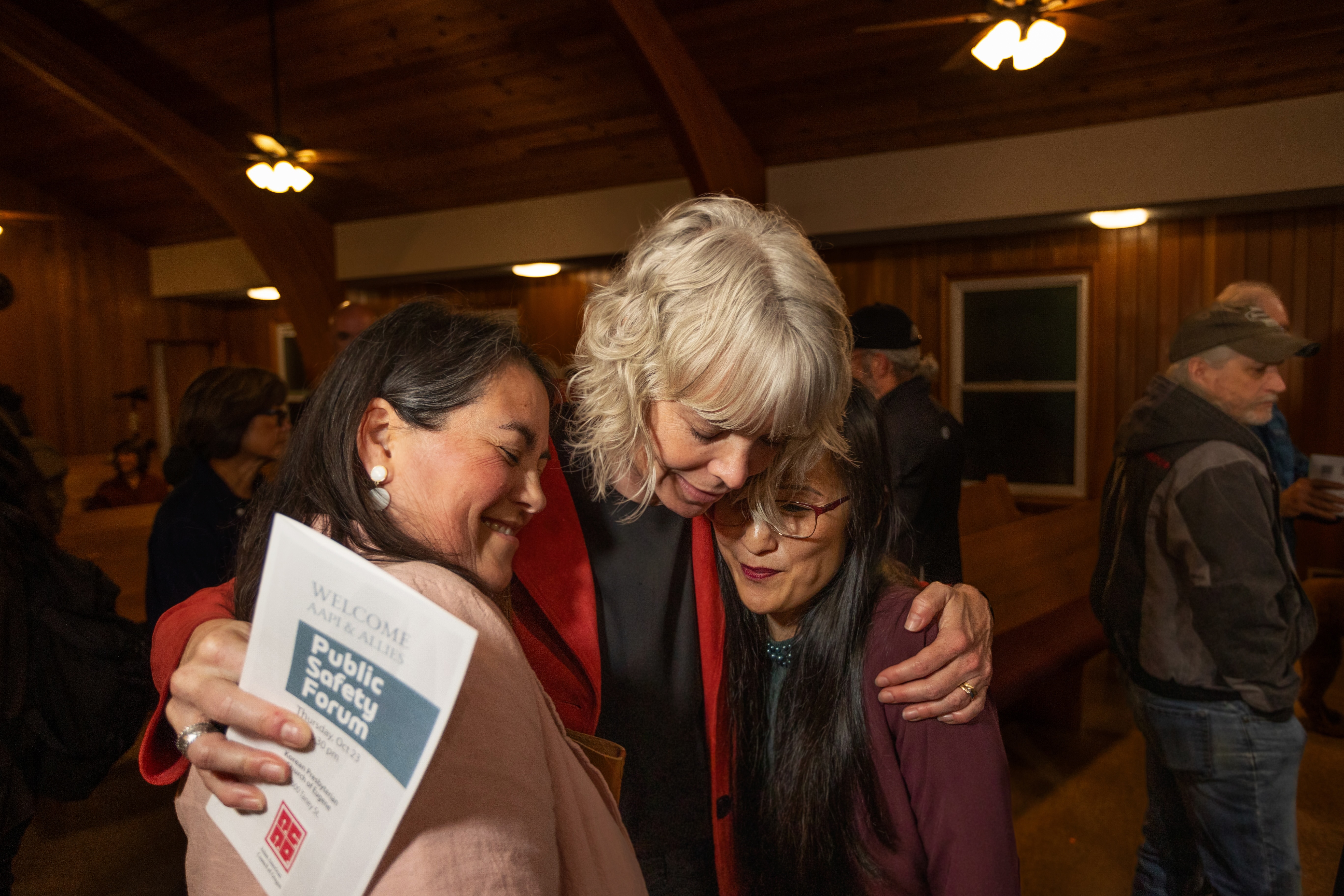
Beyond Eugene, several grantees in TAAF’s Anti-Hate and Safety National Network are addressing robberies in their community as part of their TAAF-funded work. TAAF plans to convene these grantees to share learnings and promising practices in the future.
“We'll bring them all together to talk about robberies in our AAPI community, what trends they're noticing, what lessons have been learned, and what promising practices have they seen around addressing this issue,” Giang explained. “With our funding, they can work directly on robbery issues in their community.”
To learn more about the trends and implications of robberies targeting AAPI communities, read TAAF’s analysis here.
Additional Credits
Photos that appear in this story were provided by the Asian American Council of Oregon.
.png)
